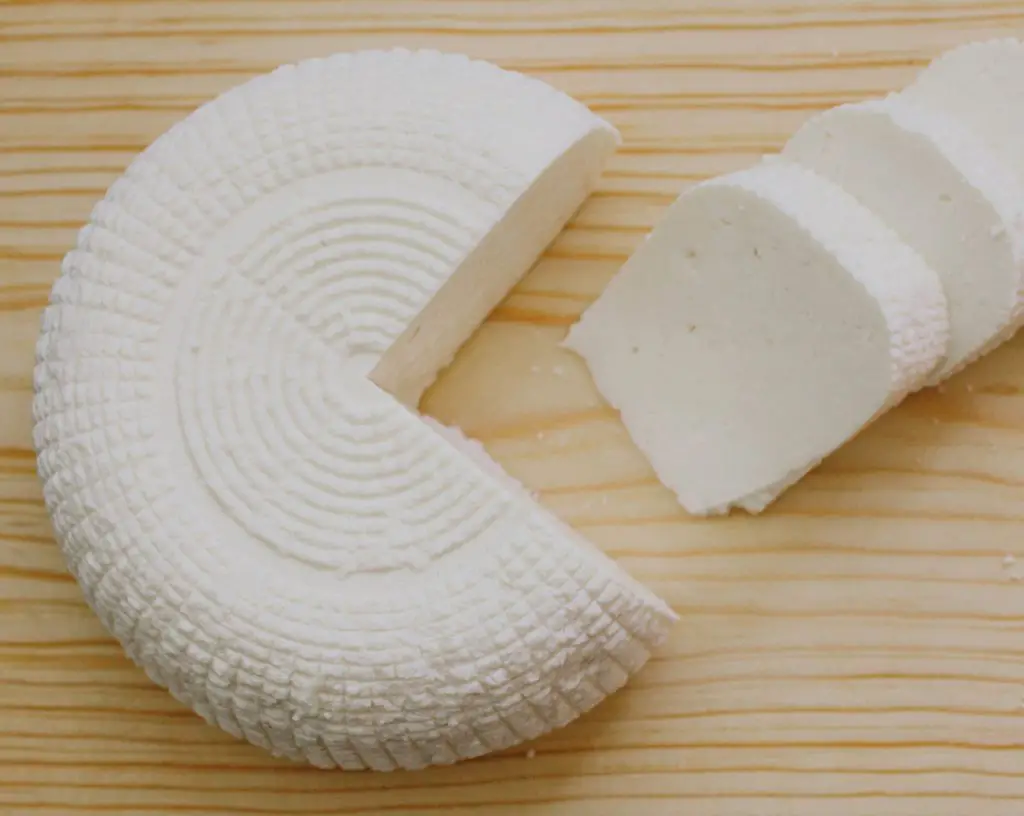Freezing Queso Fresco? (What You Need to Know)
Fresh cheese is a delight in many kitchens, and if you love fresh cheese, you’ll adore queso fresco! Queso’s tangy flavor and crumbly texture make it an excellent addition to many dishes. Suppose you can’t finish your queso fresco quickly and want to freeze it to extend its edibility—can you store it in the freezer?
You can freeze queso fresco, but doing so will affect its consistency. Have your queso fresco while it’s still fresh to enjoy all the flavors and texture. While freezing queso fresco is an option, ice crystals may develop during storage, which isn’t good for the queso fresco’s overall quality.
Below is an in-depth explanation of whether or not you can freeze queso fresco. Also included are tips to store this fresh cheese safely. Keep reading.
Can You Freeze Queso Fresco?
Queso fresco can be frozen, but its consistency will be significantly affected. The moisture content of queso fresco is about 80%, meaning ice crystals are likely to develop during storage. The ice crystals will liquefy and destroy the cheese’s texture upon defrosting.
Although you can freeze queso fresco, I don’t recommend it. The frozen cheese might be suitable for consumption, but its taste and texture will be completely different.
Freezing affects queso fresco’s consistency in two ways:
- The moisture inside the cheese solidifies, and the solid crystals create unevenness.
- The ice crystals turn liquid during defrosting and create a watery queso fresco.
Most people enjoy queso’s crumbly nature and creamy feel. However, when you freeze this cheese, you won’t be able to crumble it. You also have to be content with the high water content during thawing.

How Long Should You Freeze Queso Fresco?
You can freeze queso fresco for approximately 60 days in the freezer. The storage temperature should be 39°F (3.9°C) or lower, while the storage vessel should be airtight. A breakdown in structure might occur if the queso fresco sits in the freezer for more than two months.
According to news from the American Chemical Society, temperatures above 50°F (10°C) destroy the integrity of queso fresco.
A study dubbed the Characterization of Queso Fresco reinforces this claim. According to the study, there’s a significant change in pH, lactose, and protein profile of queso fresco’s stored at 50°F (10°C).
Does Queso Fresco Stay Fresh in the Open Air?
Queso fresco can stay fresh in the open air for two weeks. Oxygen in the air accelerates yeast growth, ultimately destroying peptides and amino acids in your queso fresco. Additionally, the moisture in queso fresco attracts bacteria from the air, limiting its shelf life.
Fresh cheese exposed to air tends to lose moisture. With time, the cheese becomes dry, and you won’t enjoy it much.
A store’s vacuum-sealed queso fresco will stay longer without going bad, while an open queso fresco might only last two weeks before changing flavors and consistency.
Homemade queso fresco is already exposed to a lot of air and is unlikely to stay fresh for long. In the absence of a fridge, homemade queso will last for 4-5 days before changing flavors. After five days, you might not appreciate the cheese’s taste.
That said, even manufacturers get it wrong. Queso fresco is particularly susceptible to the bacteria, Listeria. In February 2021, El Abuelito, a manufacturer of queso fresco, had to recall some of its products due to Listeria contamination.

Tips for Storing Queso Fresco in the Freezer
Queso fresco is best stored whole or in large portions in the freezer. The ideal storage material is an airtight container since it can’t absorb freezer odors. Alternatively, you can opt for a heavy-duty freezer bag.
You’ll need the following to start storing queso fresco in the freezer.
- Airtight storage bag/container
- Vacuum sealer
- Kitchen knife
Although a vacuum sealer (Amazon) isn’t a must-have accessory, it helps prevent freezer burns.
Preparation and Storage in the Freezer
- Ensure the queso fresco is in good condition. Check for mold signs and ensure the odor isn’t off.
- Determine the quantity you wish to freeze. Use a knife to chop the cheese into chunks that can fit in your storage container/bag.
- Wrap the queso fresco tightly in foil. You don’t need foil if the cheese is in its original packaging.
- Place the wrapped cheese portions in a freezer bag and tightly seal it. You can vacuum seal the cheese if you have a vacuum sealer.
- Transfer the package to the freezer. Frozen queso fresco should last in the freezer for eight weeks.
Consider flash-freezing queso fresco at -9°F (-22.7°C) before storing. Rapid freezing minimizes the formation of large ice crystals, which will otherwise damage your cheese.
Things To Avoid When Freezing Queso Fresco
- Never store queso fresco in non-airtight bags. Your queso will get freezer burns whenever it’s stored inappropriately. Consider vacuum-sealing the storage bags to avoid freezer burns.
- Don’t place queso fresco in the freezer for more than two months. The more this cheese stays in the freezer, the higher the chances of it undergoing degradation.
Thawing Makes Queso Fresco Watery
Thawing queso fresco takes about 12 hours. If you plan on using frozen queso fresco, you might need to leave it overnight on the counter. Alternatively, you can remove the queso from the freezer and leave it for 24 hours in the fridge.
Keep in mind that thawing creates a watery consistency. The water comes from the ice crystals that defrost.
It’s best to use frozen queso fresco immediately when you thaw it. If you don’t use the cheese immediately after thawing, the flavor and taste may not be the same anymore.

Your Queso Fresco Is Spoilt if It’s Moldy and Smelly
The obvious sign that queso fresco has gone bad is the presence of mold. Mold will manifest itself in the form of either green or white strains. Mold thrives in humid conditions, and queso fresco’s moist nature makes it the perfect environment for mold growth.
Green stains are easy to spot, but white patches in queso fresco might go unnoticed. To confirm whether your queso fresco is still good, you’ll need to smell it. Any musty odor indicates your queso is moldy.
Should You Eat Moldy Queso Fresco?
You shouldn’t eat moldy queso fresco because it contains the disease-causing bacteria, Listeria. This bacteria causes Listeriosis, a life-threatening infection that advances to bacterial meningitis.
It isn’t only moldy fresh cheese you should be avoiding. The Center for Disease Control and Prevention (CDC) advises against consuming queso made from unpasteurized milk.
Final Thoughts
It’s possible to freeze queso fresco for eight weeks, but its taste and firmness will be compromised. Freezing creates tiny ice crystals, which destroy the protein structure in the cheese. Thawing, on the other hand, makes your queso fresco watery.






